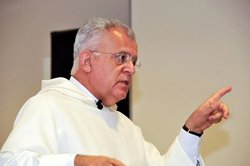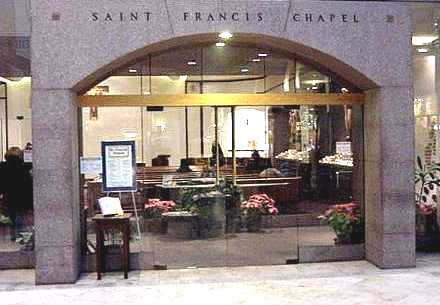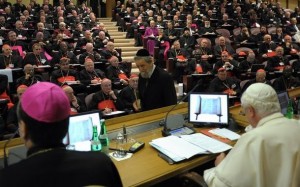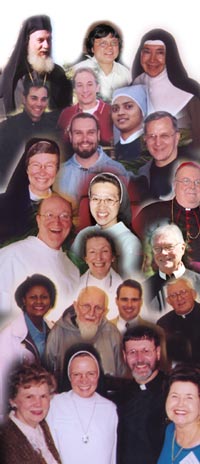 In an article in Religious Life magazine, Very Rev. Cassian Folsom, O.S.B. was asked about the resurgence of men entering contemplative Benedictine life. What is drawing them, specifically, to his monastery San Benedetto? It is, he said, the experience of a radical faith in God lived out among like-minded brothers.
In an article in Religious Life magazine, Very Rev. Cassian Folsom, O.S.B. was asked about the resurgence of men entering contemplative Benedictine life. What is drawing them, specifically, to his monastery San Benedetto? It is, he said, the experience of a radical faith in God lived out among like-minded brothers.
Father Cassian views monastic life as the perfect instrument for the New Evangelization. It is the best medicine for the God-lessness that pervades society for it is a life imbued with God at every turn, a life filled with His presence and beauty.
Over and over again, people have come into San Benedetto “by chance” and have emerged changed by their experience of the liturgy, reverently celebrated. The Benedictine’s witness of prayer and awe-inspiring liturgy is the contribution the monks can make to the New Evangelization.
Father also mentions the eight vices that are part of the pre-Benedictine tradition: gluttony, lust, avarice, acedia, vainglory, anger, pride and sadness. It is interesting that sadness is mentioned because there is a lot of sadness and aimlessness in the world today. It seems to me that this is the age-old sadness with the age-old answer: Our hearts are restless until they rest in Thee.


 As Catholics, we try to balance in our lives of faith the active Martha and the contemplative Mary. Sometimes in the process Martha gets a bad rap. She’s anxious and worried about many things (Luke 10:41), so at times we might picture her as a frantic busybody flitting about, doing 101 things, while the serene Mary sits at the feet of Jesus.
As Catholics, we try to balance in our lives of faith the active Martha and the contemplative Mary. Sometimes in the process Martha gets a bad rap. She’s anxious and worried about many things (Luke 10:41), so at times we might picture her as a frantic busybody flitting about, doing 101 things, while the serene Mary sits at the feet of Jesus. Our readers are encouraged to visit the the
Our readers are encouraged to visit the the  Last Friday, the Jamaica Plan (NY) Gazette published an
Last Friday, the Jamaica Plan (NY) Gazette published an  The
The  The Pontifical Councils for Culture and Social Communications are organizing a gather of Catholic bloggers in Rome on Monday, May 2, 2011, the day after Pope John Paul II’s beatification.
The Pontifical Councils for Culture and Social Communications are organizing a gather of Catholic bloggers in Rome on Monday, May 2, 2011, the day after Pope John Paul II’s beatification. The
The